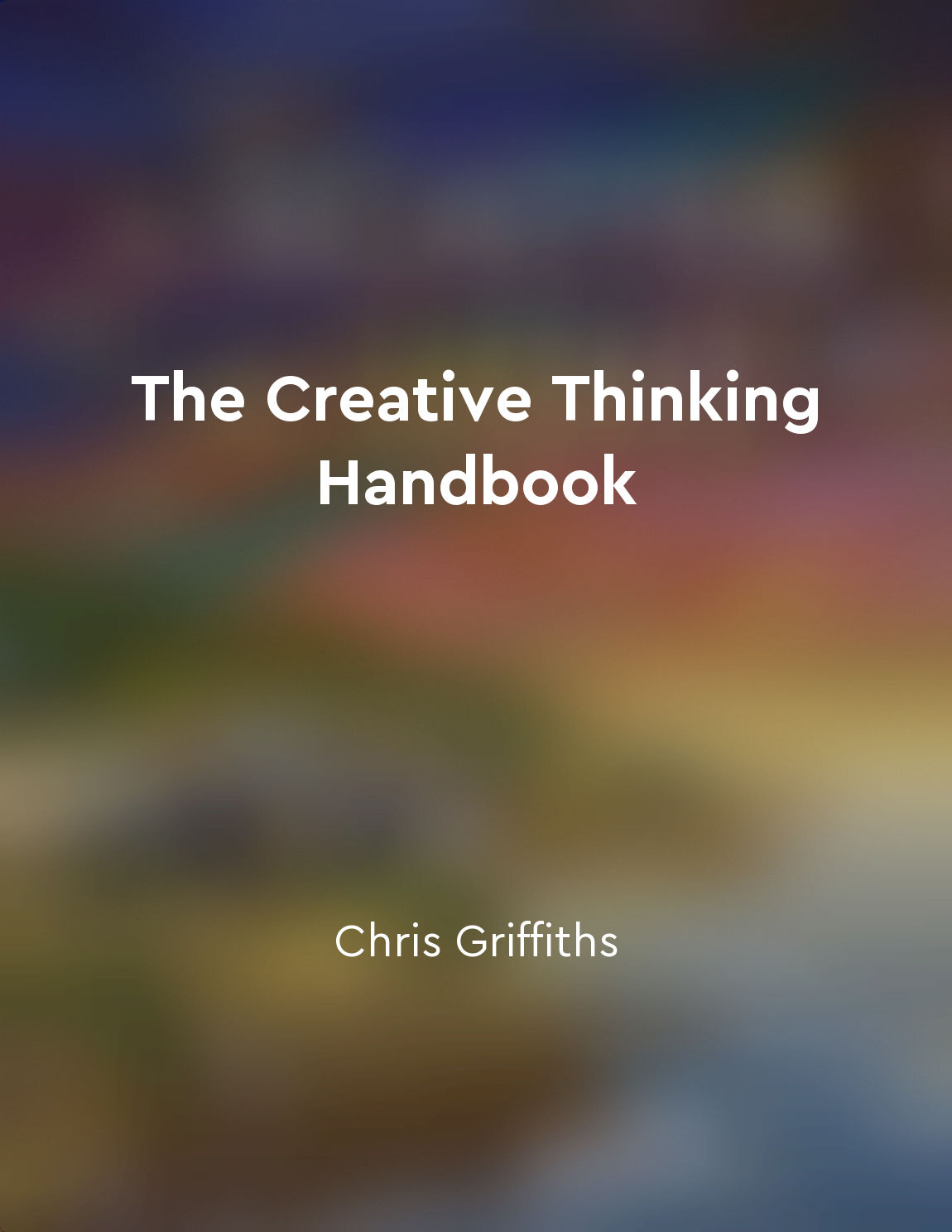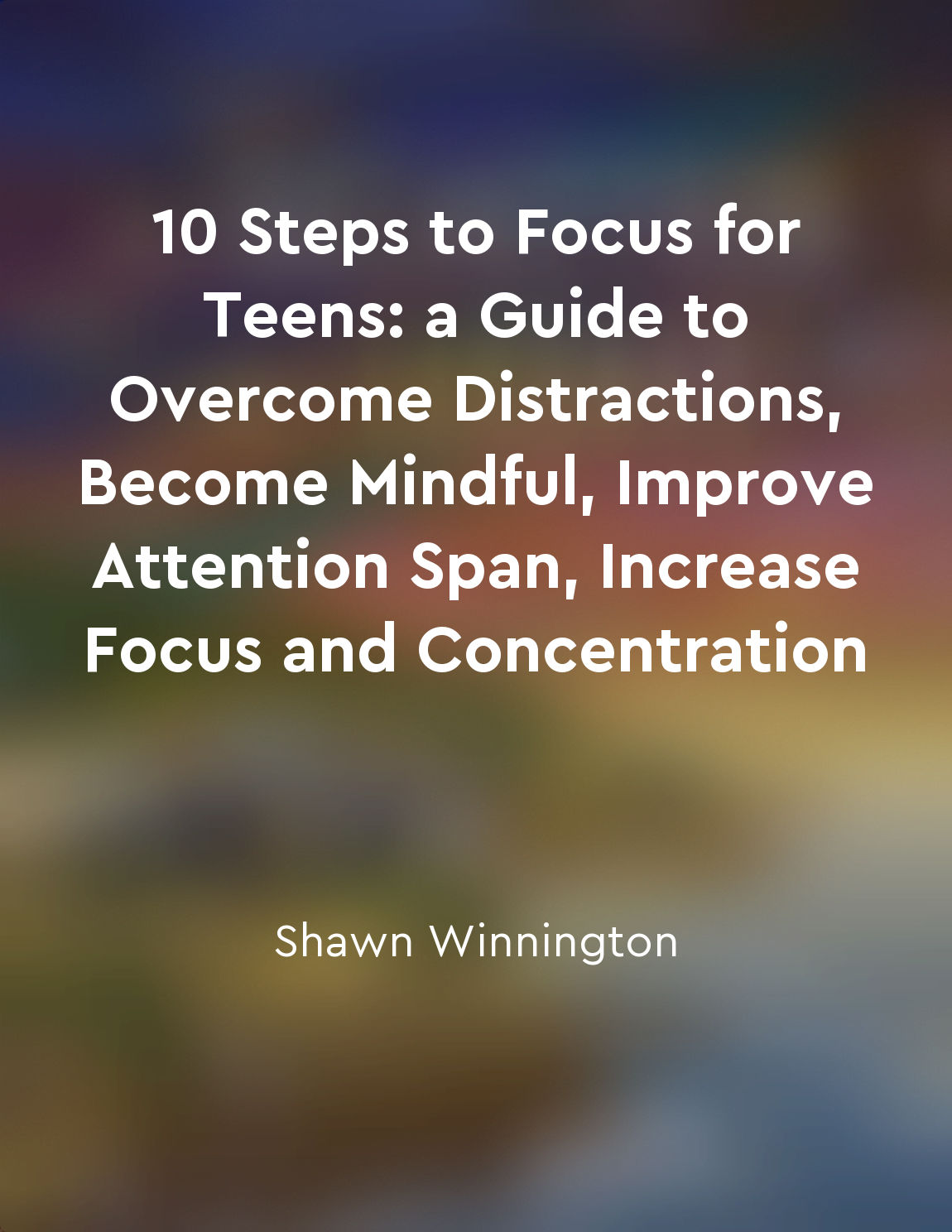Mind wandering can be beneficial for learning from "summary" of How We Learn by Benedict Carey
When we let our minds wander, we might feel guilty or distracted, believing that we should be focusing more on the task at hand. However, research suggests that this wandering is not necessarily a bad thing; in fact, it can be beneficial for learning. When our minds wander, they are not aimless - they are often processing information in the background, making connections, and forming insights that can later contribute to our understanding of a topic. This phenomenon is known as "incubation," where the mind continues to work on a problem even when we are not actively thinking about it. In a study, participants who were given a break to let their minds wander performed better on a subsequent task than those who did not have a break. This suggests that allowing our minds to wander can actually enhance our ability to learn and problem-solve. Furthermore, mind wandering can help us make connections between seemingly unrelated pieces of information. When our minds are free to explore different ideas and concepts, they are more likely to stumble upon novel insights and creative solutions. This can be especially helpful when trying to learn complex or abstract concepts that require thinking outside the box. In addition, mind wandering can also improve our ability to retain information. By allowing our minds to wander during breaks or downtime, we are giving our brains the space to consolidate and integrate new information into our existing knowledge base. This can lead to better long-term retention and understanding of the material.- While mind wandering may seem like a distraction, it can actually be a valuable tool for learning. By giving our minds the freedom to explore different ideas and make connections, we can enhance our problem-solving skills, increase our creativity, and improve our retention of information. So next time you find your mind wandering, embrace it - it might just be helping you learn.
Similar Posts
Leveraging neuroscience insights to optimize learning strategies
Understanding how the brain learns is crucial for developing effective learning strategies. By leveraging neuroscience insights...
Journaling can clarify your thoughts and enhance focus
When you sit down to write in a journal, you're engaging in what psychologists call "expressive writing." This form of writing ...

Stay open to new possibilities
Remaining receptive to new possibilities is fundamental in the creative thinking process. By maintaining an open mindset, you a...
Eliminate distractions during study sessions
When it comes to studying effectively, one of the most important things you can do is to eliminate distractions during your stu...
Resilience is important in overcoming obstacles in problemsolving
Resilience plays a crucial role in the process of problem-solving, as it enables individuals to effectively navigate through ch...

Harness your mind's potential
To truly harness your mind's potential, you must first understand the power that lies within your own thoughts. Your mind is li...
Challenge your brain with new activities
To keep your brain healthy and happy, it is essential to engage in new and challenging activities on a regular basis. When you ...
Nurturing a growth mindset
Nurturing a growth mindset involves fostering the belief that intelligence and abilities can be developed through effort, perse...
Set boundaries to protect your focus and energy
It is crucial to establish boundaries in order to safeguard your focus and energy. By setting clear limits on your time, attent...
Mindfulness empowers individuals to take control of their thoughts and emotions
Mindfulness is a practice that allows individuals to observe their thoughts and emotions without judgment. By cultivating aware...

